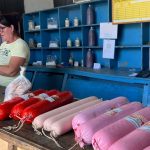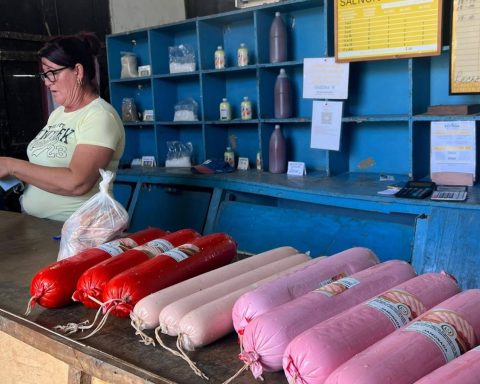As stated in the Chronicles portal, the relaxation of border controls is beginning to impact trade in the coastal departments.
In a conversation with Vera Facchín and Diego Pérez, presidents of the Salto and Río Negro shopping centers, respectively, and Juan Della Corte, in charge of border policies at the Paysandú Commercial and Industrial Center, it can be seen that there are various data account of this situation.
For example, in the sanducero department they affirm that service stations and pharmacies experience a permanent drop in their billing. Although to a lesser extent, as a result of the distance from the bridges that connect Uruguay and Argentina, this reality can also be observed in Río Negro.
Another symptom that causes concern in Facchin and Della Corte is that layoffs are beginning to be commonplace in their departments.
Mayors’ concern
We come from two years of seeing the value of the purchasing power of the sandduceros put in Paysandú in this laboratory that was the pandemic,” said the mayor of Paysandú, Nicolás Olivera.
“When the money stays here, it affects the expansion of trade, and that is threatened today,” added the mayor.
Olivera indicated that “it is time to act and take measures of a more structural nature. The mayor also referred to the proposal, for example, to make an integrated area with Paysandú and Colón with a border shift. This requires a change of focus to solve a problem that is not circumstantial”.
For their part, the merchants of Salto are beginning to face a “complex and worrying” situation, because there is already a drop in the sale of businesses in general and of stationers in particular.
The government has it hard
For Della Corte, from the Paysandú Shopping Center, the difficulty lies in making the government understand that companies cannot sustain themselves by working in these conditions.
“We are working hard on trying to propose something else to the government that has to do with those solutions that we have always asked for, which is how we can build all the links, including the State, to reach a more competitive price. At the same time we are telling him ‘protect employment because the numbers are already pitiful’. We are with a very high level of informality and the precariousness of work is incredible. But in addition to that we have low wages, and a lot of unemployment, ”he detailed.
Likewise, Facchin maintained that the exit is in the direction of developing the border policies embodied in the bills presented to Parliament.
These provide, according to the interviewees, various solutions to this complex situation, since not only products are affected but also services in this border dynamic.
“Although we value the government’s effort to increase the percentage of the discount in Imesi for the coast, this proposal is accompanied by the historical claim of our partners, which are effective controls,” he added.
However, from Río Negro they assure that the control has increased because “they brought people from customs from Montevideo”, although they believe that this is not enough and they ask for a reduction of VAT or some type of tax on products of the basic basket.
“The government has it very difficult. What we need is a lot. It weighs nothing at the country level, because we are very few and with little money it is fixed, but they have to give us much more than the rest, ”said Della Corte.
Clearly the client, the consumer in this case, will always want to buy their products in the most economical way possible, the problem is that, in this case, if there is no contingency plan to support the Uruguayan merchant, the blow will be very hard, for the owners, employees and the community in general.
Juan Prandi


















